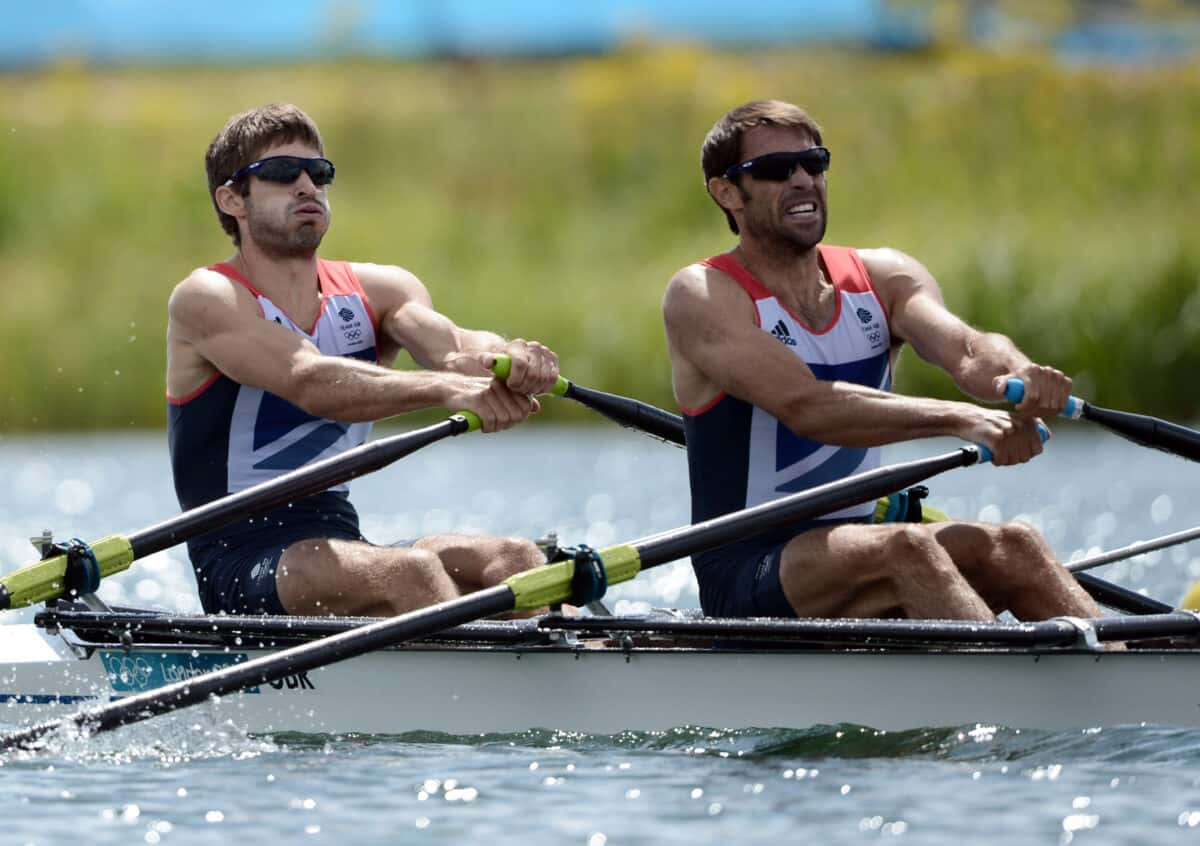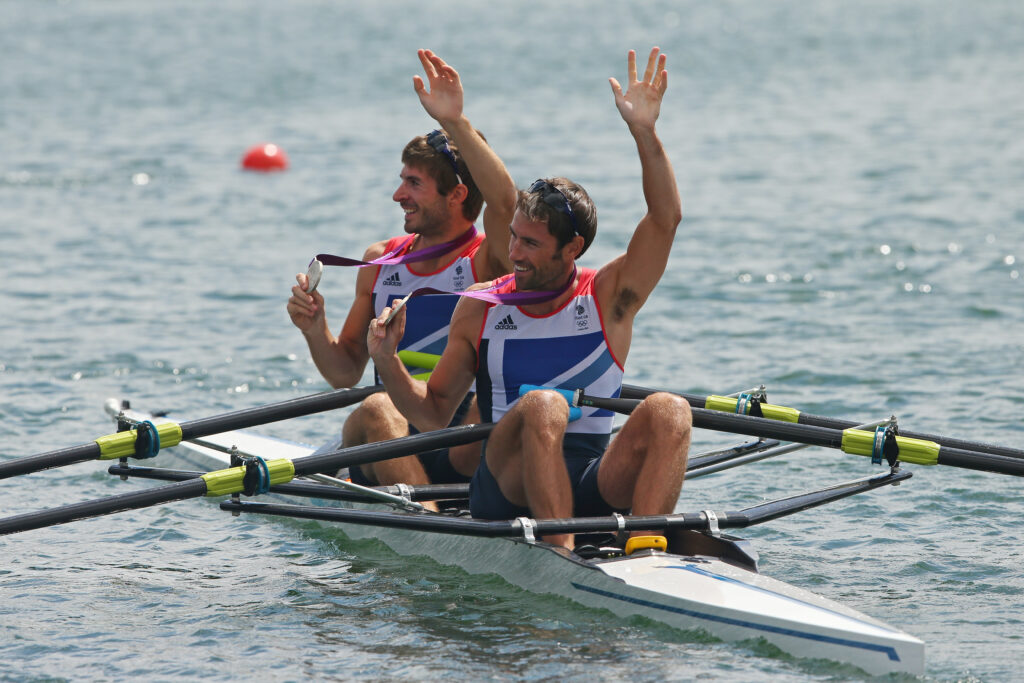
23 Jan 2024
Where are they now? Mark Hunter
Mark Hunter goes down memory lane as he talks to World Rowing about his life as a rower. Now 45 years old, Hunter has competed at three Olympic Games, has two Olympic medals, and two world championship titles.
The young Hunter loved sport especially football, but while watching the 1992 Olympic Games he saw two British brothers, Greg and Jonny Searle, win gold in the men’s coxed pair.
“I had a younger brother in the sport and I could relate to those two brothers. It blew my mind. I grew up with a single ambition to go to the Olympic Games.”

Hunter started rowing at an East End club in London where they battled with rough water, cargo boats and other River Thames traffic. He made the British team as a junior and moved on through the Under 23 ranks and into the senior squad making it to the Athens Olympics as a 26-year-old. Athens, says Hunter, was heartbreaking.
“We came last.”
Hunter says lessons learned from this result helped him progress and develop. In 2007, he paired up with Zac Purchase, and at the World Championships they won bronze. Hunter says from that point it was clear what they needed to do to win and the matrix for speed. They won every race through to and including the Beijing Olympics.
After that Hunter says he was done. He retired and moved to California working as a coach at the University of Los Angeles.
“I was loving my job, having fun watching and developing our athletes. It made me realise why I loved the sport and I realised I had something left.”
Hunter came back to rowing in 2010 and with Purchase their success continued. They won the next two World Rowing Championships and rounded it off with silver at the 2012 Olympic Games. At 34 years old, Hunter decided he was too old to continue and retired for a second time.
“I didn’t find it tough this time. I’d already tested the waters and I was ready to have weekends and be in charge of my diary. What I did find difficult was after Athens and not having a plan. After Beijing I had a plan. After London I had a plan.”
Hunter already had a job to go to as a project manager. He says lessons from rowing helped him in his communication and interaction with others, but he had to get used to a different level of tolerance.
“In the real world there’s a lot more tolerance of things not getting done. That’s not so in sport. In the real world there’s constant extensions. It took me time to adjust to being more flexible.”
Hunter’s now well entrenched in the “real world”. He has two children to fit around and a day job which draws on his rowing years – EY Lane4. He does workshops, leadership programmes, coaching and speaking events around business transformation.
Hunter keeps his hand in rowing as a regatta steward. He mentored the lightweight double in the lead up to Tokyo and his brother is a coach at Leander club. Football, cycling and running are more part of his sporting life but he did bring out the rowing machine during the Covid-19 lockdowns, although he admits he’s hardly touched it since.
After his gold at the Beijing Olympics – the first ever rowing lightweight gold medal for Great Britain – Hunter was awarded an MBE and the Freedom to the City of London. Despite these accolades Hunter says he’s not often recognised. He does note though being pulled in to answer the sports questions at his daughter’s school quiz night. The next day some of the parents came up to him having learnt about his background.
Hunter says sport has given him so much.
“As a kid my drive was to prove people wrong because I came from the East side of London. Then I had the heartbreaking result in Athens.”
That helped drive him to truly commit.
“I never wanted to look back and say ‘what if’. I got to live out my dream.”

